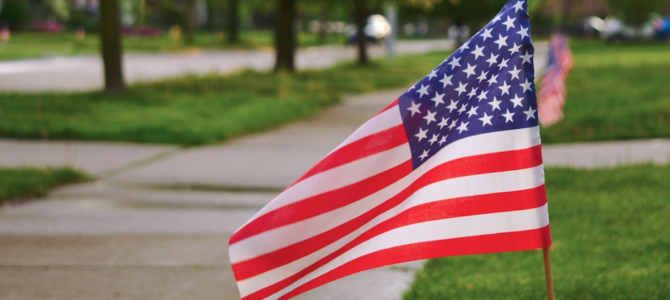
“It’s eerie outside,” a friend said over the phone in March 2020, a few days after national lockdowns began. “It feels like an occupied city; like World War II movies about Paris.”
Just a little over a week before, I’d been with him and two neighbors in Baltimore. Our friends had been comparing notes on what to do with stocks, how to buy ammunition, and where to acquire deep freezers for weeks now, but while the world was closing in, a small group of us toasted a final afternoon in a nearby city.
We visited the Sagamore Spirits Distillery, where over delicious pours, staff and customers discussed word of impending closures. Rumors swirled of imminent travel bans, and tourism had slowed to a trickle while friends and family on the road exchanged updates and hustled home to avoid getting stranded. In Baltimore that Saturday, March 7, 2020, hotel rooms were cheap, upgrades for frequent travelers were easy, and Peter’s Pour House was still serving tall shots and the local lager in frosted mugs.
It would be our last evening in nearby Charm City for over a year.
The morning after, I walked to Baltimore’s Basilica of the Assumption. Designed by Benjamin Henry Latrobe, the architect of the U.S. Capitol, it was the first Catholic church of its magnitude built in the young United States, and its distinctly American, neo-classical design was chosen to blend in at a time when the country was fearful of — and hateful toward — the Catholic religion and any overt display of its presence.
Three days later, Washington, D.C. Mayor Muriel Bowser declared a State of Emergency. The move, she insisted, was “largely… an administrative action.” It would, she claimed, simply give her “more authority to implement and fund the measures that we need to monitor and respond to COVID-19 in our community.”
By the following Monday, March 16, she’d used her newfound authority to force what she deemed “non-essential services” to close.
In the pews that earlier Sunday in Baltimore, 219 years after our American cathedral’s consecration, none of us knew for sure what was coming, but we wouldn’t have long to wait for the return of public suspicion of the faithful. By the end of that month, D.C.’s mayor would decree my local churches closed for business, and by the summer, a neighborhood priest would be harassed for praying the rosaries outdoors with the sisters. Before much longer, some of his own neighbors were calling The Washington Post to report on a Capitol Hill monsignor they falsely accused of deviating from the COVID order.
But for some, neighborhood subversion was already brewing when St. Patrick’s Day began.
That morning felt right out of history, as I sat alone in the kitchen, worried about plague and the collapse of the national economy. I poured a dram of whisky into my coffee and did some writing while a station from Boston played the saddest Irish song I’ve ever heard.
Before lunch, a neighbor rang. His brother had fled south from New York City, his daughter and her boyfriend had driven up from a shuttered school, and all together they were going to have a small celebration. That afternoon I walked the deserted, “occupied” streets to their home, a bottle and gift in hand, to join in our first little act of rebellion.
Over the next few months we were cautious, and that neighborhood family was among our only contacts with the outside world. Then on Holy Saturday, a friend and I were headed for home when we heard the 10 p.m. bells tolling at a Capitol Hill church. I stopped a couple from around the block who were hurrying down the dark sidewalk in their Sunday best to find if the bells signified what I hoped.
“Is there a secret vigil?” I asked. “No,” the man replied at the same time as his wife, who had answered with an excited “Yes!”
My friend and I turned to each other in disbelief, and walking around to a nearby window, caught the flicker of candlelight inside. Opening an unlocked side door to the adjacent church, we saw scattered throughout maybe two dozen masked faithful kneeling in quiet prayer. The songs of nuns and priests in prayer echoed through the dark, cavernous building for nearly an hour before a candle-lit procession of local clergy entered the altar from a side door.
“I see we have a few intruders,” the homilist chuckled as he began his sermon. “I like to keep two doors unlocked, per city ordinance.” Like the Masses at the Rocks centuries ago, the worship of our Lord would continue regardless of what our leaders had decreed.
Slowly over the weeks, more neighbors, similarly isolated, began to join our Sunday dinners. One by one, as the shutdown dragged on, “cocktail parties” between balconies became shuttered gatherings around kitchen tables. Our illicit dinners were a regular occurrence by mid-May, when a friend whose once-booming company had been destroyed by the shutdown joined me on a cross-country trip to cover our politicians’ devastation of America’s small businesses.
Our drive across the country began in California, a state where most residents seemed to relish in Dr. Anthony Fauci’s arbitrary prognostications. But in the secretly open highway bars of Nevada’s desolate gold country, rebellion reigned. In Pierre, South Dakota, 1,800 miles from our thoroughly shut-down starting point, Gov. Kristi Noem welcomed me with a hug, and a nearby family of ranchers invited us in for lunch after a morning of branding their calves. The American heartland, we saw, was well beyond D.C.’s hidden dinner parties.
By the time we returned to our paranoid capital with tales of freedom from across the country, we were ready to move our bi-weekly Bible study from Zoom to my kitchen table. A guest who picked up our dinner at a local Italian restaurant that had survived the first few months of closures gleefully reported he’d been invited to sit at the bar for a glass of wine, where a number of patrons were enjoying illicit dinners. That restaurant, like most in our city, had boarded their windows to deter the summer rioters; now their boarded windows deterred the mayor’s prying eyes.
On the Hill, our little rebellion slowly grew. By the time the rescheduled Kentucky Derby took place in an empty Churchill Downs, more than 20 sun-dressed and seer-sucker-clad guests gathered in my home raised fresh mint juleps to the winner. Word of open bars just across the Maryland border brought travelers, while just across the river in our own D.C., neighborhood business after business succumbed under the awful weight of our mayor’s stubborn stupidity.
This week, as we exited a full year of toppled statues, rising crime, and continuing restrictions, we held the first St. Patrick’s Day Party any of our friends had been to since March 2019. With Celtic music playing just a block from our razor-wired Capitol, we shared corned beef, shepherd’s pie, and Irish stout as friends and families who hadn’t seen each other in a year hugged and enjoyed the warm outdoor sun.
“Do I have to wear this?” one guest asked, pointing to her mask as she entered the courtyard. “Not if you don’t want to,” I replied. She quickly took it off, and for the first time in 12 months I saw her smile.
In two weeks, we’ll be returning to Baltimore. We’re going back to go to Sagamore Spirits Distillery, where tastings have begun once again. We’re going to learn what a year of shutdowns has brought our neighbors, and we’re going to order a tall shot and the local lager in a frosted mug at Peter’s Pour House.
It’s been a hell of a year for Americans. We’ve lost friends and family. We’ve been forced by indifferent politicians and cruel bureaucrats to mourn passed loved ones from our laptop screens. Saddest of all, we’ve watched as Americans across the country have surrendered their freedoms and informed on their neighbors in exchange for delusions of security. But here in this house, as in free homes and states across the country, we won’t surrender.
We’re a free people, but only so long as we’re willing to fight for it. Don’t be fooled into submission by false political slogans, and don’t unquestioningly do what you’re told. Small acts of rebellion may be just that, but they can be important.
Here in my neighborhood, they showed us that we really are in this together — just not how the politicians and corporations told us we were. These are the things that keep us together, remind us that we are Americans, and tell our leaders that here, in this country, we won’t all surrender.
If you’ve read this far, you have your own stories of rebellion (or you’re an informant gleaning as many details as you can for your neighborhood watch). But to the former: Keep it up — and write down your memories.
If we win — and we must win — your grandchildren might someday want to hear your stories from the past year. And to the informers, go right ahead. We’ll be here, undaunted and free.









